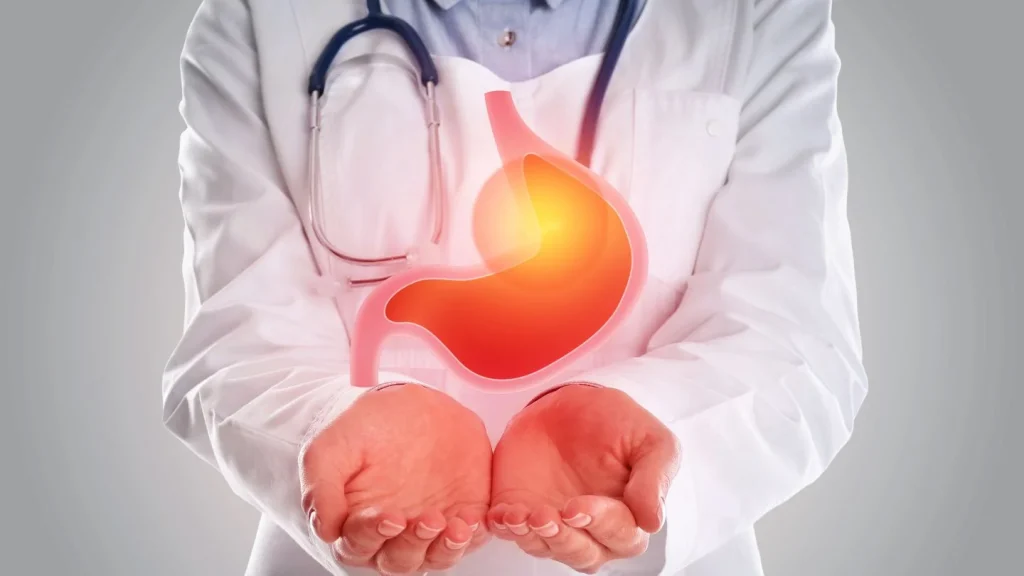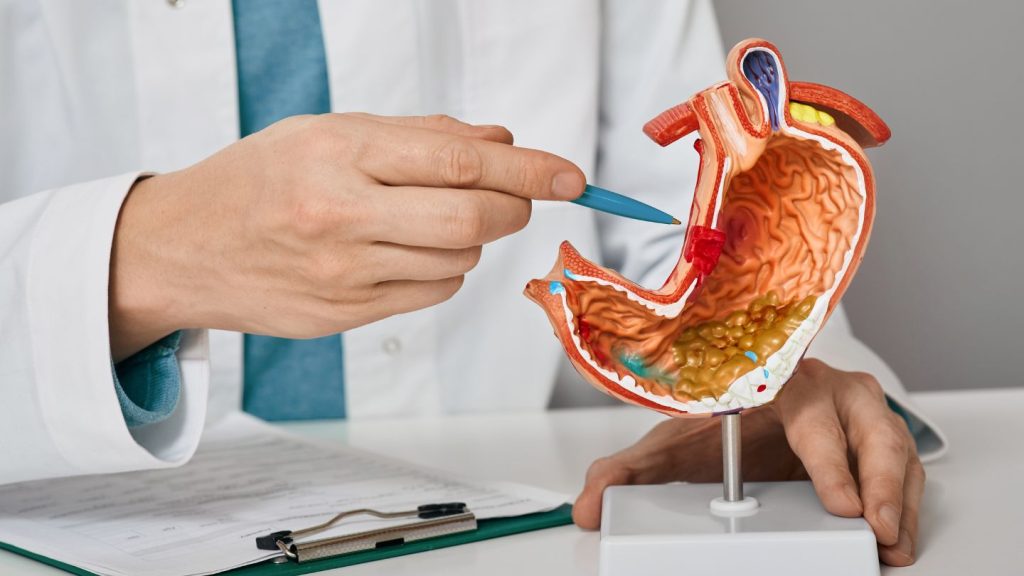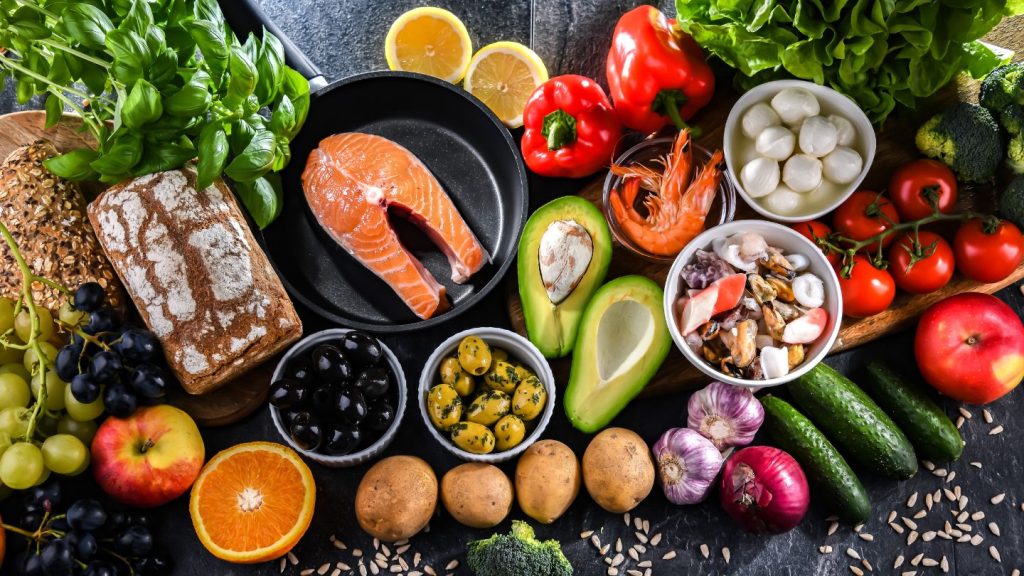
Top Solutions for Managing Hunger After Gastric Sleeve Surgery
Hunger after gastric sleeve surgery is a common experience for many patients. While the procedure reduces the size of the stomach, it doesn’t completely eliminate feelings of hunger, and managing appetite can still be a challenge. Understanding the reasons behind these hunger cues is key to navigating life after surgery. Hormonal changes, eating habits, and lifestyle factors all play a role in how your body reacts post-surgery. In this blog, we’ll explore why hunger persists, how to identify its triggers, and practical strategies to keep it under control. With the right tools, you can stay on track and achieve your health goals.
Key Takeaways
- Understanding the distinction between physical hunger and head hunger is essential for managing appetite after gastric sleeve surgery.
- Inadequate protein and fiber intake, along with dehydration, are common causes of persistent hunger, making dietary management crucial post-surgery.
- Incorporating professional support and practicing mindful eating can significantly aid in effectively managing hunger and supporting sustained weight loss.
Understanding Hunger After Gastric Sleeve

Gastric Sleeve Surgery significantly alters the stomach size, creating a smaller stomach pouch that limits food intake and promotes satiety. One of the key changes post-surgery is the reduction of hunger hormones like ghrelin, which play a crucial role in hunger signals. Metabolic changes that occur after the surgery also influence how the body communicates hunger and fullness between the gut and brain. These changes mean that gastric sleeve patients may experience hunger sensations differently from before the surgery.
Initially, many patients report a significant reduction in hunger after bariatric surgery for the first few months after the surgery. However, this doesn’t always last, and some may start feeling hungry within weeks. The smaller stomach capacity allows the body to signal fullness sooner, but patients can still feel hungry due to other factors at play. It’s important for bariatric patients to recognize that experiencing hunger is normal even after the physiological changes brought about by the surgery.
Many gastric sleeve patients face the challenge of persistent hunger and cravings despite the surgery’s effects on hunger hormones and signals. This can be due to various reasons, including inadequate dietary adjustments and psychological factors. Identifying the root causes of hunger and adopting effective management strategies are key to long-term weight loss success.
Distinguishing Types of Hunger
It is essential to differentiate between various forms of hunger for successful hunger management following a gastric sleeve procedure. There are two main types of hunger: physical and head (or psychological) hunger. Identifying which type you’re experiencing helps guide your decision on whether or not to eat, thereby preventing overeating. Paying close attention to the signals your body sends plays a critical role in discerning genuine bodily needs from emotional impulses that can impact weight control after surgery.
A prevalent issue post-gastric sleeve operation is confusing thirst with the sensation of hunger, resulting in eating when one should actually be drinking water. Learning to distinguish thirst from the actual need for food is immensely beneficial in managing postoperative effectively. By better understanding what your body truly requires, you can make informed decisions consistent with maintaining health objectives.
Physical Hunger
Physical hunger is our body’s natural demand for nourishment. It signals its need through various indicators like the sound of stomach rumbling, experiences of hunger pangs and pains, as well as a sensation of emptiness within your stomach area. Accurately identifying these true physical hunger cues is vital for maintaining proper appetite control and ensuring that the body gets the essential nutrients it requires.
This type of hunger typically suggests that your body is in need of an increased calorie intake, particularly from foods high in protein and fiber, which are known to encourage feelings of fullness and ward off relentless cravings. Not getting enough protein and fiber can lead to overpowering hunger pains along with a persistent sense of being hungry because these macronutrients digest slowly, helping you stay satiated longer. The “hunger hormone” plays an important role in regulating this aspect.
By incorporating sufficient amounts of protein and dietary fiber into what you eat daily, you can effectively manage signs associated with physical hunger while also sustaining a healthy weight after surgery, if applicable. Being mindful about responding adequately to such bodily cues surrounding food consumption aids in preventing unintentional overeating, thereby facilitating progress on one’s journey toward weight loss success.
Head Hunger
Head hunger is a psychological craving for food, frequently prompted by emotional states or visual stimuli rather than an actual need to eat. Feelings like boredom, loneliness, or sadness might lead one to experience head hunger and prompt eating even when not truly hungry. After surgery that necessitates reducing portion sizes, individuals may also notice an increase in head hunger.
To cope with head hunger effectively requires approaches distinct from those used for physical hunger. Methods such as engaging in various activities or pastimes can help stave off the urges related to mental cravings. Steering clear of situations that provoke these cravings and seeking guidance from a bariatric psychologist on how to handle emotional eating are instrumental strategies.
Recognizing the difference between physical and head hunger plays a crucial role in regulating your dietary patterns and securing ongoing weight loss success while assisting you in your efforts to shed pounds.
Common Causes of Persistent Hunger
Several factors contribute to ongoing hunger following gastric sleeve surgery. Notably, neglecting a well-rounded diet with adequate nutrients can prompt continuous feelings of hunger. When the body does not receive the vital calories and nutrients it needs, this may provoke frequent sensations of appetite that are hard to control after the operation. Adhering to a diet rich in essential nutrients while keeping calorie consumption low is critical for maintaining weight loss over time.
Another prevalent issue arises from insufficient fluid intake, which can cause individuals to mistake thirst signals for hunger pangs, leading them astray regarding their true hunger cues. If physical activity levels rise without properly increasing caloric and nutrient intake correspondingly, gastric sleeve patients might experience relentless hunger as well.
Inadequate Protein Intake
After undergoing gastric sleeve surgery, consuming an adequate amount of protein is crucial for achieving a sense of fullness and addressing daily nutritional requirements. For those who have had this procedure, it’s vital to follow a diet high in protein to help with the sensation of satiety and contribute to weight loss efforts. Patients are advised to consume between 80 and 100 grams of protein per day post-surgery. To calculate your minimum required protein intake, identify your ideal healthy weight first and then divide that number by 2.2.
Lean proteins should make up approximately 35% of the total calories consumed in meals for individuals who have received a gastric sleeve. A lackluster consumption level can result in ongoing feelings of hunger due to not feeling satisfied after eating. This often leads one towards higher carbohydrate foods that metabolize faster, causing hunger pangs more quickly than desired. Ensuring sufficient levels of both protein and fiber is imperative for managing hunger effectively while fostering lasting fullness among patients with a gastric sleeve.
Low Fiber Consumption
Incorporating fiber into one’s diet is crucial for managing hunger as it helps extend the duration of satiety and deters excessive consumption. High-fiber food items, including vegetables, fruits, legumes, and whole grains, enhance feelings of fullness and augment meal satisfaction. It is advisable for individuals who have undergone a gastric sleeve procedure to consume upward of 20 grams of fiber each day.
Should there be a deficit in the intake of fibrous foods, an individual may experience persistent hunger since these types of foods contribute to sustained fullness and aid in proper digestion. By integrating fiber-rich nutrition into your dietary regimen after surgery, you can effectively manage your hunger impulses while supporting your weight loss journey.
Dehydration
Dehydration is another common cause of persistent hunger after gastric sleeve surgery. Thirst can often be mistaken for hunger, leading to unnecessary eating when the body actually needs hydration. Hydration is crucial, as dehydration can mimic feelings of hunger and confuse hunger signals.
Patients are advised to consume at least 64 ounces of sugar-free liquids daily post-surgery to stay hydrated and reduce feelings of hunger. Proper hydration supports overall bodily functions and helps manage hunger effectively.
Read more: Staying Properly Hydrated After Your Gastric Sleeve Surgery
Effective Strategies to Manage Hunger

Managing hunger effectively after undergoing gastric sleeve surgery necessitates making dietary changes and engaging in conscious eating patterns. Being mindful of how you eat and responding appropriately to the body’s signals for hunger is essential for fostering a healthy lifestyle following the operation. Controlling stress is imperative because it can amplify levels of hormones like ghrelin that trigger appetite, leading to an increased desire to eat.
To curb hunger pangs and aid in weight reduction efforts, it’s beneficial to include satiety-enhancing foods such as those high in protein and healthy fats into your diet. It’s equally important to steer clear of sweets and overly processed snacks, which may lead one down a path towards excessive eating, thereby complicating the effective management of hunger sensations.
Understanding what fuels feelings of post-postoperative and adopting measures tailored toward dealing with these instances are key steps toward modifying one’s relationship with food consumption. This strategic approach is instrumental in realizing long-term success with weight loss goals.
Prioritize Protein-Rich Foods
Including foods high in protein in your diet is essential for increasing satiety and diminishing the sensation of hunger following gastric sleeve surgery. Opt for sources of lean protein like poultry, seafood, and vegetarian proteins to help sustain fullness and fulfill your daily requirements for this nutrient.
Ensuring that every meal includes a serving of lean protein is pivotal not just for managing appetite but also for aiding muscle preservation and general well-being. By focusing on consuming foods abundant with protein, you can better regulate hunger sensations and preserve a healthy weight after undergoing gastric sleeve surgery.
Incorporate Healthy Fats
Adding healthy fats to your meals can greatly increase the sense of satisfaction without significantly boosting calorie consumption. Essential sources of healthy fats like avocados, nuts, and olive oil not only aid in extending fullness but are also advisable constituents for any diet aiming to ensure prolonged satiety. Ideally, 35-40% of your daily calories should be derived from such beneficial fats to achieve maximum feeling of fullness.
When you indulge in snacks rich in healthy fats, it’s crucial to keep an eye on portion sizes. Snacks that contain these nutrients should preferably remain below 200 calories. This helps prevent overconsumption while still harnessing their ability to help curb hunger effectively. By integrating healthy fats into your eating regimen, you’ll find they play a supportive role in controlling appetite and advancing towards weight loss objectives.
Practice Mindful Eating
Mindful eating practices help gastric sleeve patients recognize true hunger signals and avoid overeating. Eating quickly can increase appetite and the likelihood of overeating, as the brain needs time to signal fullness. Chewing food thoroughly helps in signaling fullness and aids in nutrient absorption.
Mindful eating involves paying attention to your eating habits, savoring each bite, and eating slowly. This allows you to become more aware of your hunger and fullness cues, helping you to eat only when you are truly hungry and stop when you are satisfied.
Adopting mindful eating practices helps control hunger more effectively and maintain a healthy weight after weight loss surgery.
Nutritional Balance for Sustained Weight Loss

To secure a lasting weight loss following gastric sleeve surgery, it is essential to follow a diet that fulfills your nutritional requirements while being well-rounded. If you do not consume enough calories, you may experience ongoing hunger, which can challenge appetite control and jeopardize the maintenance of your weight reduction. Augmented physical activity after the surgery could intensify feelings of hunger unless there is an appropriate increase in caloric consumption.
It’s important to plan meals strategically and refrain from skipping them in order to keep command over your hunger signals. Obtaining nutrition guidance from experts can aid you in deciphering these signals and understanding your dietary needs post-gastric sleeve procedure. This ensures adherence to a balanced diet that propels you forward on your weight loss path.
Balanced Carbohydrate Intake
Following gastric sleeve surgery, a balanced diet plays a crucial role in both achieving and preserving weight loss. By including whole grains and resistant starches like brown rice, quinoa, and oats in your dietary regimen, you can stabilize blood sugar levels and manage sudden bouts of hunger effectively. These foods are integral in controlling appetite while ensuring consistent energy levels after the procedure.
Maintaining steady blood sugar by consuming carbohydrates from whole grains and resistant starches is key to dampening fluctuations in hunger. It’s an effective strategy for appetite control that contributes significantly to enduring weight loss success post-gastric sleeve surgery.
Read more: How Many Carbs After Gastric Sleeve Are Okay?
Regular Meal Patterns
After undergoing gastric sleeve surgery, it’s advised to consume small meals frequently to effectively control hunger. This typically involves having three primary meals along with two or three snacks, spaced out every three to four hours. Such regular eating intervals are beneficial in sustaining energy and averting overpowering hunger.
Establishing a routine that includes balanced meals and snacks at consistent times throughout the day is crucial for appetite regulation and effective hunger management. By doing so, you can sidestep severe feelings of hunger and cravings, which aids in progressing successfully on your weight loss journey.
Professional Support and Resources

It’s essential to seek professional assistance to manage hunger effectively after a gastric sleeve procedure. Understanding the difference between emotional and physical hunger is crucial for successful weight management following surgery. Healthcare professionals, such as registered dietitians and therapists, can provide personalized strategies to address ongoing hunger issues.
If persistent hunger occurs despite following nutritional guidelines, consulting a bariatric dietitian can be helpful. They can offer guidance on portion sizes and dietary plans that are vital for controlling hunger after surgery. Professional support can also help develop healthy coping mechanisms to address emotional challenges that may lead to overeating.
Final Thoughts on Managing Hunger After Gastric Sleeve Surgery
Understanding and managing hunger after gastric sleeve surgery is key to achieving your weight loss and health goals. By distinguishing between physical hunger and emotional triggers, adopting mindful eating habits, and focusing on a nutrient-rich diet, you can create sustainable, healthy changes. Seeking professional support ensures you’re on the right track and that your approach is tailored to your unique needs.
At Ascension Saint Agnes Bariatric Surgery, we are here to guide you every step of the way. If you’re considering or have already had a gastric sleeve in Maryland, our team offers expert care and personalized advice to help you succeed. Let us help you make lasting progress toward your health goals. Your journey to better health starts with the right partner. We also provide services such as bariatric revision surgery, endoscopic sleeve gastroplasty, gastric balloon procedure, and gastric bypass. Additionally, we specialize in gastrointestinal surgeries to address a range of conditions. Contact us today to learn more about how we can assist you.
Frequently Asked Questions
What is the recommended daily protein intake for gastric sleeve patients?
For gastric sleeve patients, it is recommended to consume 80 to 100 grams of protein daily to ensure proper nutrition and support recovery.
Meeting this protein goal is essential for your health and well-being.
How can I distinguish between physical hunger and head hunger?
Understand that physical hunger stems from an authentic need to eat, while head hunger is frequently associated with emotional responses or external stimuli such as the sight and smell of food.
Be mindful of what your body communicates. Genuine hunger will continue over time, while head hunger tends to diminish when one becomes occupied with other activities.
Why is fiber important in managing hunger?
Fiber plays an essential role in managing hunger because it extends the duration of satiety, thereby aiding in avoiding excess consumption and maintaining prolonged satisfaction.
How much water should I drink daily after gastric sleeve surgery?
After gastric sleeve surgery, aim to drink at least 64 ounces of sugar-free liquids each day to maintain hydration and control hunger.
Staying properly hydrated is crucial for your recovery.